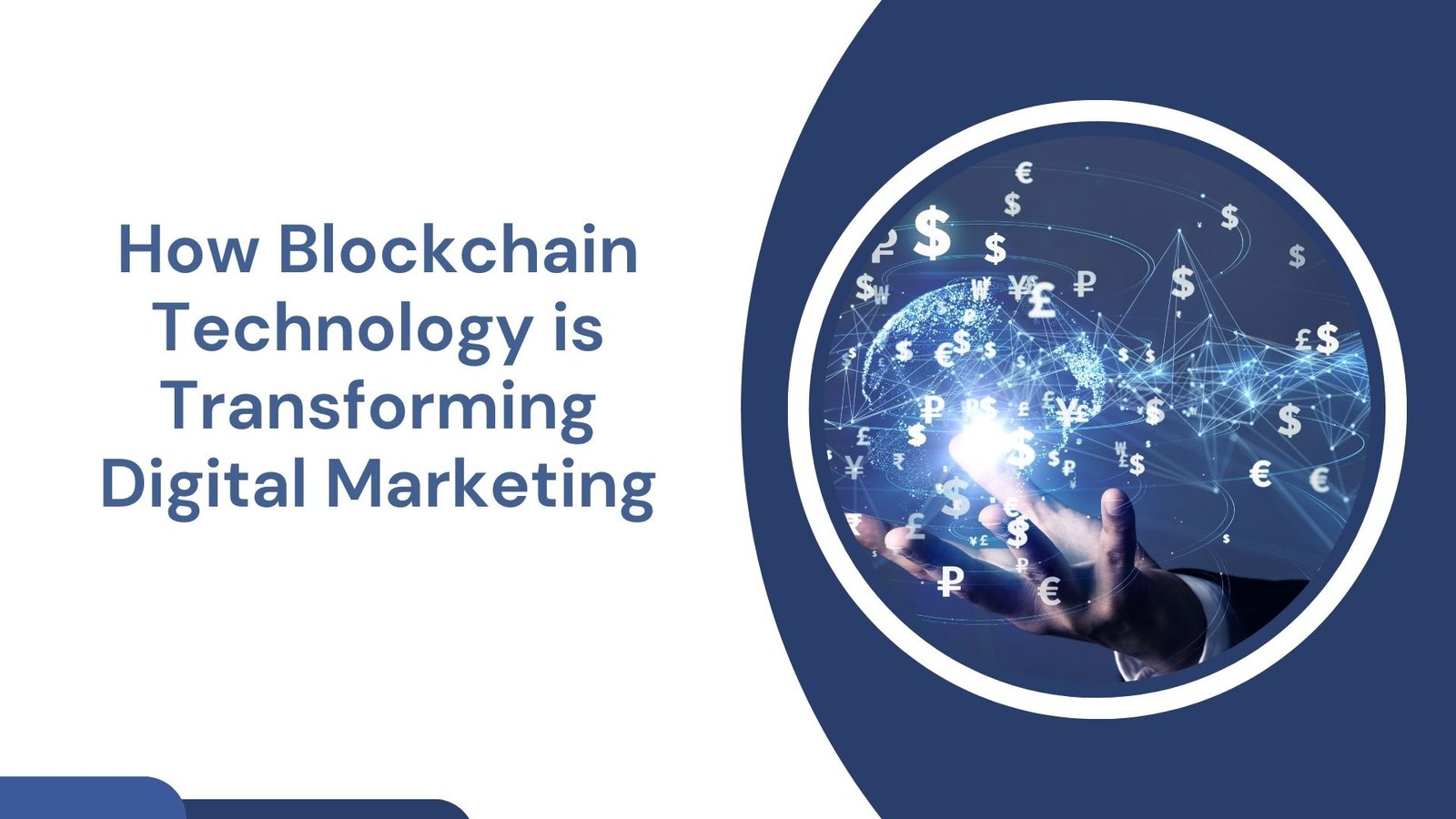Introduction
Digital marketing has undergone significant transformations over the years, with innovations in data analytics, artificial intelligence, and automation shaping the industry. However, one of the most groundbreaking advancements in recent years is the adoption of blockchain technology. Originally developed for cryptocurrency transactions, blockchain is now being explored for its potential to revolutionize digital marketing by enhancing transparency, security, and efficiency.
Understanding Blockchain Technology
Blockchain is a decentralized digital ledger that records transactions across multiple computers in a secure and transparent manner. Each transaction is stored in a “block” and linked to previous transactions, forming a “chain” that is immutable and tamper-proof. This distributed nature ensures data integrity and prevents fraud.
Key Ways Blockchain is Transforming Digital Marketing
Enhanced Transparency and Trust
One of the biggest challenges in digital marketing is the lack of transparency in advertising metrics. Blockchain allows advertisers and businesses to track and verify ad impressions and clicks in real time. This eliminates fraudulent practices such as click fraud, where bots generate fake clicks, leading to wasted ad spend.
Eliminating Ad Fraud
Ad fraud costs businesses billions of dollars annually. Blockchain can authenticate and verify the legitimacy of users, ensuring that only genuine engagement is counted. With smart contracts, advertisers can automate payments only when predefined conditions are met, reducing the chances of being scammed.
Improved Data Security and Consumer Privacy
With increasing concerns over data breaches and misuse of personal information, blockchain offers a secure solution by giving consumers greater control over their data. Instead of relying on centralized servers, personal information is stored in a decentralized manner, reducing the risk of hacking. Users can also grant specific access permissions to marketers, ensuring ethical data usage.
Revolutionizing Customer Loyalty Programs
Traditional loyalty programs often suffer from inefficiencies, including complex redemption processes and lack of interoperability between different brands. Blockchain can streamline loyalty programs by creating token-based rewards systems that are easily transferable and redeemable, enhancing customer engagement and retention.
Decentralized Digital Advertising
Currently, digital advertising is dominated by centralized platforms such as Google and Facebook, which act as intermediaries between advertisers and consumers. Blockchain enables decentralized advertising networks where brands can directly connect with their target audiences, reducing advertising costs and increasing efficiency.
Authenticating Influencer Marketing
Influencer marketing has become a powerful tool for brands, but issues such as fake followers and engagement fraud can undermine its effectiveness. Blockchain can verify influencer credibility by providing an immutable record of genuine audience engagement, ensuring that brands work with authentic influencers.
Efficient Cross-Border Payments
For global digital marketing campaigns, transaction fees and processing times for cross-border payments can be a challenge. Blockchain-based cryptocurrencies allow for instant and cost-effective transactions, facilitating seamless international collaborations.
Real-World Examples of Blockchain in Digital Marketing
Several companies have already started leveraging blockchain technology to enhance digital marketing strategies:
- Brave Browser & Basic Attention Token (BAT): Brave browser uses blockchain to reward users with BAT tokens for viewing ads, creating a more equitable advertising ecosystem.
- IBM Blockchain for Advertising: IBM has developed blockchain-based solutions to improve transparency and efficiency in digital advertising.
- Lucidity: A blockchain-based platform that helps advertisers combat ad fraud by providing real-time tracking and verification of ad impressions.
Challenges of Implementing Blockchain in Digital Marketing
While blockchain offers numerous advantages, its adoption in digital marketing also comes with challenges:
- Scalability Issues: Blockchain networks can be slow and require significant computing power, which may affect real-time advertising transactions.
- Regulatory Concerns: The decentralized nature of blockchain may raise concerns about compliance with data protection laws such as GDPR.
- Adoption Barriers: Many businesses and marketers lack the technical expertise to integrate blockchain into their marketing strategies effectively.
The Future of Blockchain in Digital Marketing
As blockchain technology continues to evolve, its impact on digital marketing is expected to grow significantly. Advancements in scalability solutions, regulatory clarity, and increased adoption by major industry players will pave the way for a more secure, transparent, and efficient digital marketing ecosystem.
Conclusion
Blockchain technology is revolutionizing digital marketing by enhancing transparency, eliminating fraud, and improving data security. While challenges exist, the benefits far outweigh the drawbacks, making blockchain a game-changer for the industry. As businesses and marketers continue to explore blockchain applications, the future of digital marketing looks more promising than ever.













Leave a Reply